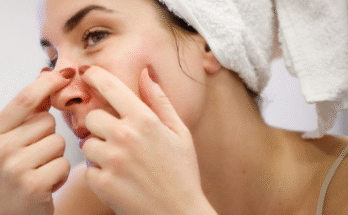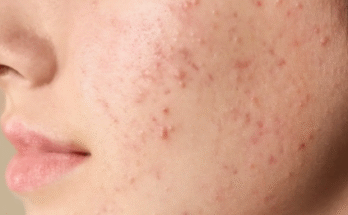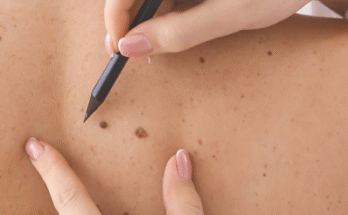In today’s fast-paced world, where deadlines, long meetings, and constant digital engagement define the rhythm of life, maintaining healthy skin often falls to the bottom of the to-do list. For many professionals, this can lead to a frustrating combination of dry skin and acne. These two issues may seem opposite—one suggesting a lack of moisture and the other an excess of oil—but they often coexist, especially when stress, diet, and skincare habits are out of balance. Understanding how to manage both conditions without overcomplicating your routine can help you maintain clear, comfortable skin even with a demanding schedule.
Dry skin occurs when the skin’s natural barrier loses moisture and essential oils. Factors such as cold weather, air conditioning, frequent travel, and the use of harsh cleansers can strip the skin of hydration. Acne, on the other hand, develops when pores become clogged with oil, dead skin cells, or bacteria. Surprisingly, dryness can actually trigger more breakouts. When the skin is dehydrated, it may produce extra oil in an attempt to compensate, leading to clogged pores and irritation. For professionals constantly on the go, this cycle can be difficult to manage, particularly when stress and irregular routines add to the problem.
The key to addressing dry skin and acne together lies in creating a gentle, consistent skincare approach. Instead of relying on aggressive products that promise instant results, it is more effective to focus on restoring balance to the skin. A good starting point is a mild cleanser that removes dirt and excess oil without stripping away the skin’s natural moisture. Many professionals wash their faces hurriedly in the morning and at night, but taking an extra minute to massage a gentle cleanser into the skin can improve circulation and ensure that impurities are properly removed. Look for formulas that contain soothing ingredients like glycerin, ceramides, or aloe vera, which cleanse while protecting the skin barrier.
Hydration is another essential step that should not be overlooked, even for acne-prone skin. Some people with breakouts skip moisturizer, fearing it will make their acne worse, but this can lead to further dryness and irritation. Choosing the right moisturizer is important. Lightweight, non-comedogenic formulations—those that do not clog pores—can provide hydration without causing breakouts. Ingredients such as hyaluronic acid and niacinamide can be especially helpful. Hyaluronic acid attracts water to the skin, giving it a smooth and refreshed feel, while niacinamide helps calm redness and strengthen the skin barrier.
Busy professionals often face environmental challenges that affect skin health. Office air conditioning, heating systems, or long flights can deplete moisture levels, leaving skin tight and uncomfortable. Keeping a small bottle of facial mist or hydrating spray in your bag can provide quick relief during the day. Spritzing a fine mist of water-based hydration can refresh your skin and prevent dryness from worsening, particularly in climate-controlled environments. This small act of self-care can also serve as a momentary pause in a hectic schedule, helping to reduce stress levels that may contribute to acne flare-ups.
Speaking of stress, managing it is an often-overlooked aspect of acne care. The pressures of professional life can elevate stress hormones, which may increase oil production and inflammation in the skin. While it may not be realistic to eliminate stress entirely, incorporating small, mindful habits can make a difference. Short breaks for deep breathing, stretching, or even stepping outside for a few minutes of fresh air can help regulate stress and, by extension, support healthier skin. Sleep is equally important. Lack of rest disrupts the body’s repair processes, leading to dullness, dehydration, and increased acne activity. Striving for consistent, quality sleep can enhance both mental clarity and skin vitality.
Diet also plays a subtle yet significant role in managing both dryness and acne. A balanced diet rich in water, fruits, and vegetables supports overall hydration and provides antioxidants that help protect the skin. Foods containing omega-3 fatty acids, such as salmon, walnuts, and flaxseeds, can help maintain the skin’s lipid barrier, reducing dryness and inflammation. Conversely, minimizing excessive sugar, refined carbohydrates, and processed foods may help regulate oil production and reduce the likelihood of breakouts. Hydration from within is equally vital. Drinking enough water throughout the day keeps the body and skin balanced, particularly for professionals who rely on caffeine to stay energized.
Another important factor in caring for both dry and acne-prone skin is choosing products that fit your skin’s needs without overloading your routine. Simplicity often works best. Cleansing, moisturizing, and protecting your skin from the sun should form the foundation of your regimen. Sunscreen is especially important, even for people with acne, because sun exposure can dry out the skin and worsen irritation. Opt for a lightweight, broad-spectrum sunscreen labeled non-comedogenic. This will help prevent UV damage while minimizing the risk of clogged pores.
For those who wear makeup daily, choosing skin-friendly products can make a significant difference. Look for foundations and concealers designed for sensitive or combination skin types. At the end of the day, ensure all makeup is thoroughly removed before bed to prevent buildup that can lead to breakouts. Double cleansing—a method involving an initial makeup-removing oil or micellar water followed by a gentle facial cleanser—can help ensure that pores remain clean without stripping the skin.
Consistency is perhaps the most powerful skincare habit, especially for those with demanding lifestyles. Even the most effective products cannot perform well if used irregularly. Developing a short, reliable routine that fits into your morning and nighttime habits is more sustainable than trying complex regimens that are difficult to maintain. Setting small reminders or keeping your skincare products within easy reach can help make the process second nature.
For busy professionals, skincare should feel like a moment of restoration, not another task. Creating a mindful routine can transform it into a form of daily self-care that benefits both appearance and well-being. Taking just a few minutes each day to care for your skin can be an act of grounding—an opportunity to slow down, breathe, and reconnect with yourself amid the rush of responsibilities.
In the end, addressing dry skin and acne requires understanding that your skin’s needs may change with your environment, stress levels, and lifestyle. Flexibility and consistency go hand in hand. By using gentle, hydrating products, maintaining balance in your daily habits, and prioritizing rest and stress management, you can achieve calmer, clearer skin without adding extra stress to your schedule. Healthy skin is not about perfection but about creating harmony between your body, mind, and the pace of your life. With the right care and a little patience, even the busiest professionals can enjoy smooth, comfortable, and confident skin that reflects their inner balance and vitality.


